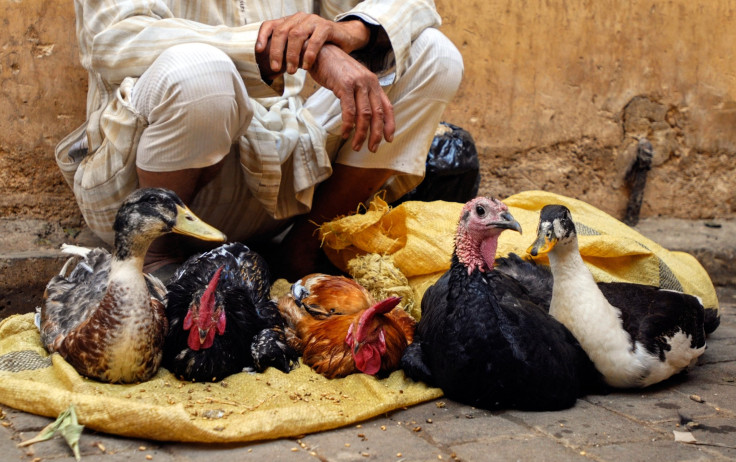Second H7N9 Bird Flu Case Confirmed In Hong Kong; Chinese Officials Scramble To Prevent Pandemic

The new form of avian influenza, a strain called H7N9, has already killed 45 people in mainland China this year. Earlier this week, the first case was identified in Hong Kong, and now a second has been confirmed as well.
An 80-year-old man living in Hong Kong was hospitalized at Tuen Mun Hospital with the flu after developing a fever. Originally from the border city of Shenzhen in the mainland of China, the man moved to Hong Kong just this week. The city government will reportedly move the patient to the isolation ward at Princess Margaret Hospital, as well as tighten controls over travelers entering the city, making sure to observe their health conditions and any sign of fever. The avian flu, though it is difficult to transfer from human to human, can be fatal. Typically humans contract the virus from handling birds, dead animals, or from being in contaminated environments.
On Dec. 2, a 30-year-old man with a “history of poultry contact” came down with the H7N9 bird flu in Hong Kong. Since then, the city has been attempting to bolster its defenses to prevent an outbreak. “We cannot afford to take it easy or relax, as we are facing a new virus,” said Premier Li Keqiang, who was touring China’s Center for Disease Control and Prevention with reporters, according to CNN.
Cases of H7N9 found in humans first began sprouting in February of this year, according to Chinese officials. In April, they began to surge; and in the summer the number of cases dropped to five. As of Nov. 6, there have been a total of 139 confirmed cases, according to the World Health Organization. “As yet, there is limited information about the scope of the disease the virus causes and about the source of exposure,” the WHO writes on its website. “There is no indication thus far that it can be transmitted between people, but both animal-to-human and human-to-human routes of transmission are being actively investigated.”
The Centers for Disease Control and Prevention wrote a report on its website, noting that the number of cases dropped off in the summer because the avian virus has a seasonal cycle. “The decrease in H7N9 cases over the summer likely resulted from a combination of control measures taken by Chinese authorities — like closing live bird markets — and a change in weather,” the CDC stated. “Studies indicate that avian influenza viruses, like seasonal influenza viruses, have a seasonal pattern: they circulate at higher levels in cold weather and at lower levels in warm weather.”



























